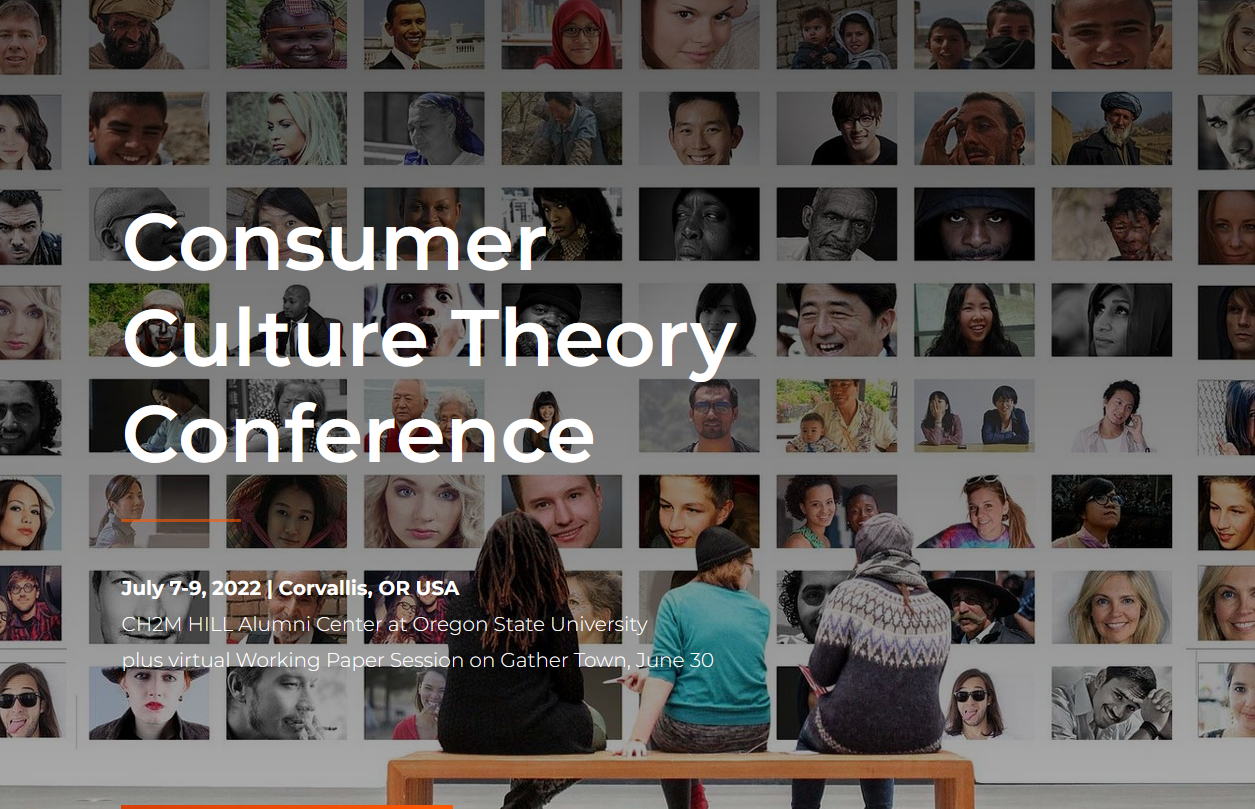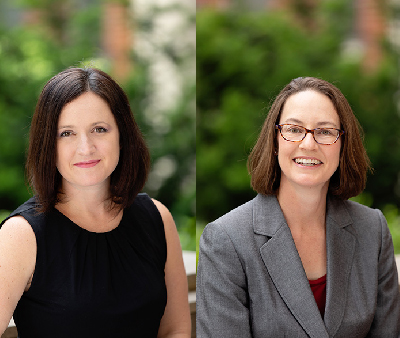News, articles, and interesting stuff from the College of Business
Flagship Marketing Research Conference “Disruption for a Better World” Arrives in Corvallis; Honors OSU Professor Jim McAlexander

The Oregon State University College of Business hosts “Disruption for a Better World,” the 2022 Consumer Culture Theory Consortium (CCTC) international marketing conference on July 7 through 9, at the CH2M HILL Alumni Center in Corvallis, Oregon.
“Disruption for a Better World,” will examine how disruptions to markets, and studying these disruptions, can make improvements to society and the environment. It is the annual flagship conference for CCTC, an organization dedicated to consumer culture theory research.
Disruption – rapid and drastic upheaval – has been a focal research theme since the COVID-19 pandemic emerged, and the CCT 2022 conference – the first gathering of the global CCT community since pre-pandemic times – is oriented to the opportunity and responsibility of CCT scholars to examine how disruption can foster a better world, the organization says.

Right: Associate Professor of Marketing Michelle Barnhart.
Conference keynote June Francis, associate professor of marketing at Simon Fraser University’s Beedie School of Business, British Columbia, and co-founder of the Co-Laboratorio project, will speak about racial justice and disruption for betterment in her talk, “An Urgent Call To Action For Marketing Researchers To Address Structural And Systemic Anti-Black Racism.”
The event, co-chaired by College of Business Associate Professor of Marketing Michelle Barnhart and Associate Professor of Marketing Aimee Huff, welcomes approximately 300 researchers annually from around the world for in-person and remote participation.

Both Huff and Barnhart also are presenting the CCT research during the three days of seminars, roundtables and panels. A pre-conference event on July 6 and 7 brings together the top marketing scholars from around the world and about 50 doctoral students in a companion workshop.
In a special tribute to OSU Professor Emeritus Jim McAlexander who passed away in spring 2022, OSU and the McAlexander family will present the first annual McAlexander Research Award for outstanding contributions to consumer culture theory.
McAlexander, a co-founder of OSU’s Center for Marketing and Consumer Insights, was renowned for his CCT research on the Harley Davidson consumer subculture. The award will be presented by his son, Brandon McAlexander, assistant professor of marketing at the University of North Dakota.
The conference is open to registered participants. Dr. Francis’ extensive publishing can be referenced on her biography page, including the 2021 paper, A Macromarketing Call to Action – Because Black Lives Matter!
Consumer culture theory (CCT) is an interdisciplinary field of research, oriented around developing a better understanding of why consumers do what they do and why consumer culture takes the forms that it does, the organization says. Theorists focus on understanding the interrelationships between various material, economic, symbolic, institutional, and social relationships, and their effects on consumers, the marketplace, other institutions, and society. Researchers typically draw from and build on theories rooted in sociology, anthropology, media studies and communications, history, literary criticism and semiotics, gender and queer theory, cultural studies, and marketing, according to the CCTC website.
2022 CCTC Research: OSU College of Business presents…
The Perilous Prudence Paradox: A Market System Dynamics Model of a Widening Risk Attitude-Behavior Gap
Lena Pellandini-Simanyi, Università della Svizzera italiana, Switzerland
Michelle Barnhart, Oregon State University, College of Business, USA
Why, in some markets, do increasing numbers of risk-averse consumers hold risky products over time? We develop a process model of producer-consumer dynamics and show that in markets characterized by risk competition, paradoxically, the cautious consumers who wait the longest to enter the market end up with the highest risk products.
Destigmatizing “Weird” and “Freaky” Period Products: An Intimate Exploration of Consumer Adoption of Menstrual Cups
Mycah Harrold, Washington State University, USA
Annabella Donnadieu, Washington State University, USA
Aimee Huff, Oregon State University, USA
We examine consumer adoption of menstrual cups (reusable menstrual products), which are particularly stigmatized within the broader and stigmatized domain of menstruation. We develop a nuanced, embodied understanding of menstrual cup consumption and identify links between product features (perceived invasiveness), “creaturely” body construal, and the experience of managing menstrual fluids.
How ‘Gunfluencers’ Shape the Digital Platformization of U.S. Gun Culture
Michelle Barnhart, Oregon State University, USA
Jenna Drenten, Loyola University Chicago, USA
Lauren Gurrieri, RMIT University, Australia
Aimee Huff, Oregon State University, USA
Despite gun brands being limited in advertising firearms on digital platforms, gun-related content is rampant on social media. Contributing to research on the digital platformization of consumer culture, this research explores how social media influencers platform contested markets, specifically the phenomenon of gunfluencers and U.S. gun culture.